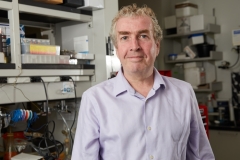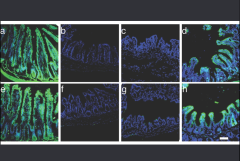A Phase I clinical trial demonstrated that a targeted approach to treating a deadly brain tumor in children called diffuse intrinsic pontine glioma (DIPG) is safe, reported Weill Cornell Medicine and Memorial Sloan Kettering Cancer Center investigators. This is the first larger scale study using a radiation-based direct drug delivery approach to treat and image DIPG.
DIPG is an aggressive cancer without any effective treatment—fewer than 10% of children survive two years after diagnosis. The tumor embeds itself into the brainstem that regulates vital functions, including breathing, heart rate and muscle control. Neither chemotherapy drugs nor surgery can reach the tricky location at the base of the brain.
The new study, published Feb. 19 in Neuro-Oncology, established that infusing a drug called 124I-Omburtamab directly into the brainstem is a safe way to maximize delivery of the drug right where DIPG tumors develop—without poisoning the rest of the body.







